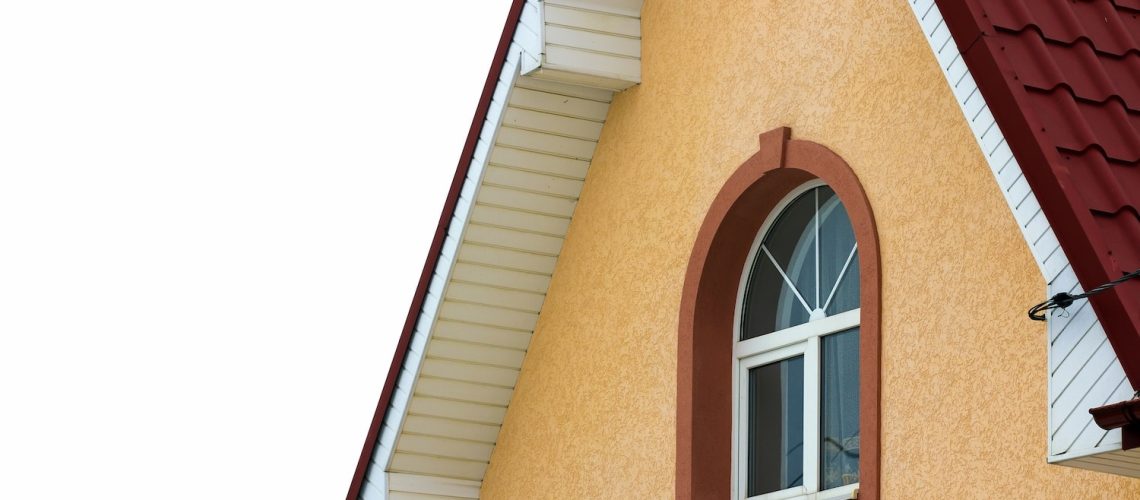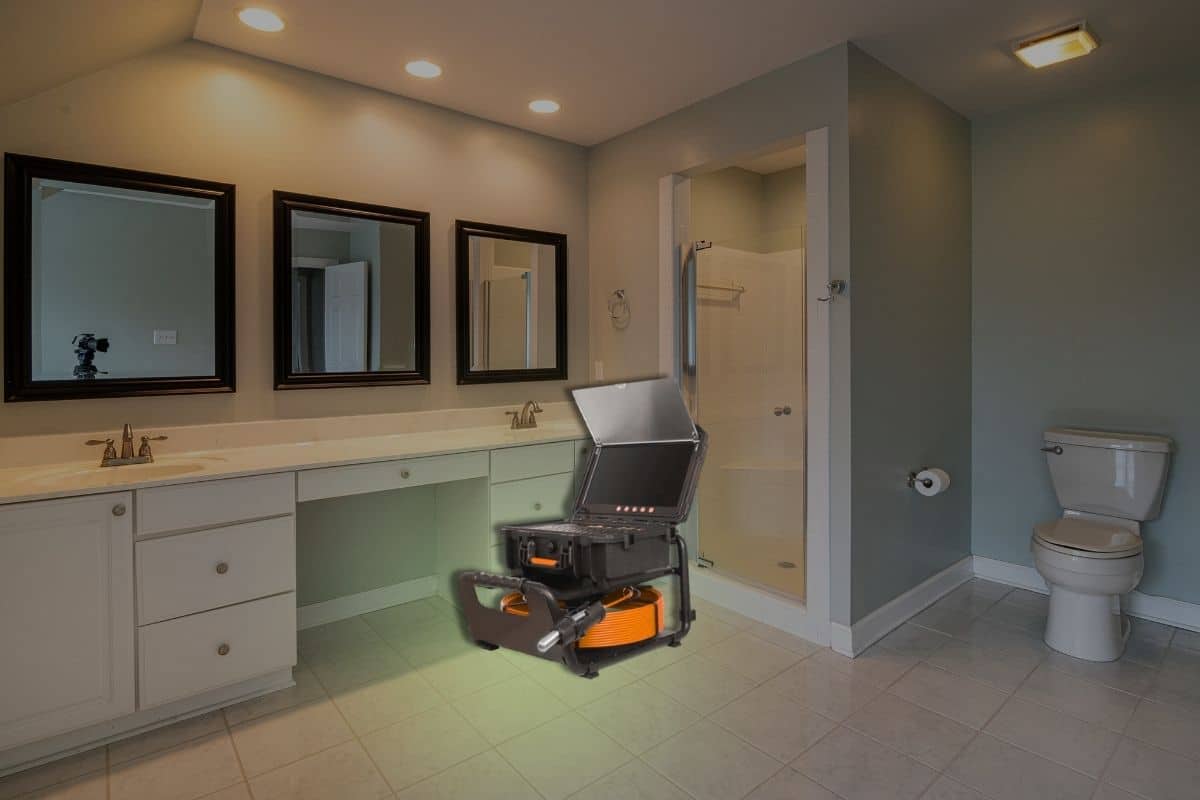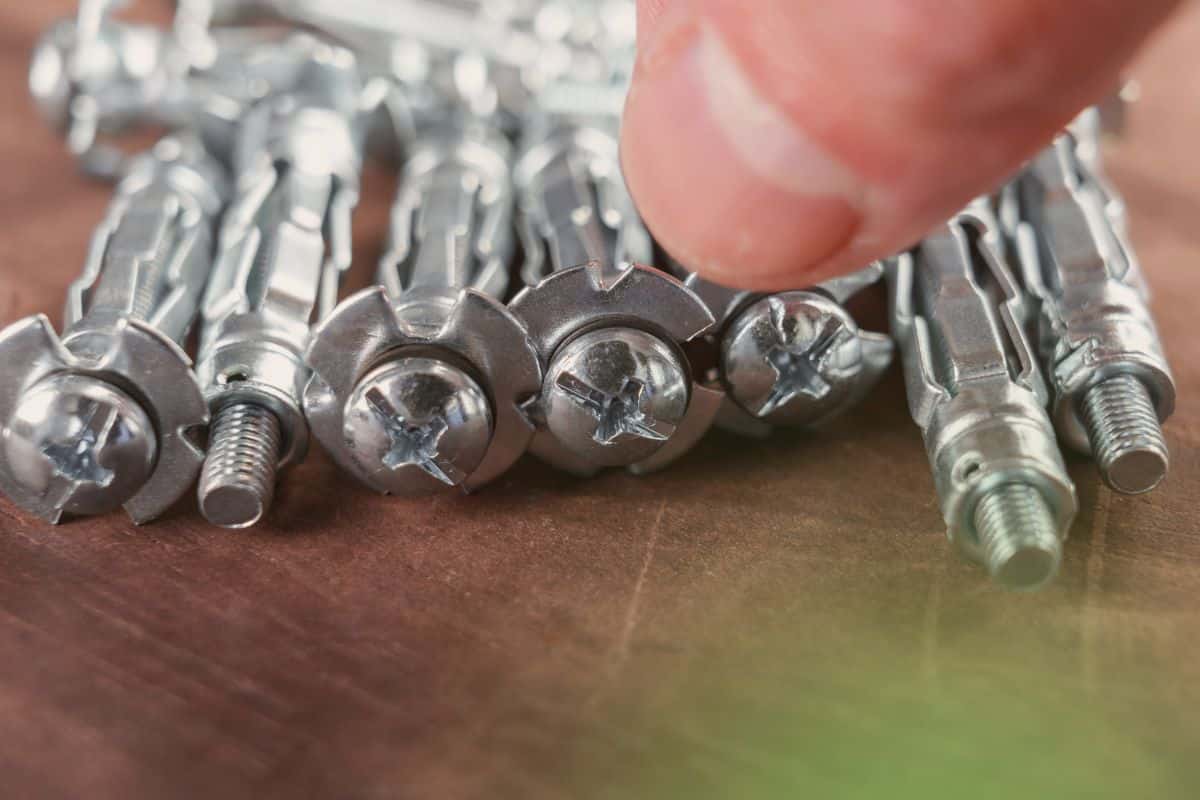If you’re buying or selling a home with EIFS construction, it’s important to know what that means. At a glance, it might look like stucco, but what’s underneath can have a big impact on the value and condition of the home.
EIFS stands for Exterior Insulation and Finish System. It’s a type of wall cladding that looks great and improves energy efficiency. But over the years, EIFS has also earned a reputation for potential moisture problems, hidden damage, and repair costs.
Learn what EIFS construction is, why it matters during a home sale, and what both buyers and sellers should keep in mind.
Table of Contents
ToggleWhat Makes EIFS Construction Different from Stucco?
EIFS is often mistaken for stucco, but the two are very different beneath the surface.
Traditional stucco is a cement-based material applied in multiple coats over a wire mesh. It’s durable and breathable, which helps moisture escape from the wall system.
EIFS, on the other hand, is synthetic. It typically includes a layer of foam insulation, a base coat with mesh, and a textured finish. It’s designed to insulate and seal tightly—but that tight seal can cause problems if water gets behind it. Without proper drainage, moisture can become trapped, leading to rot, mold, and other damage inside the walls.
This is why EIFS construction often needs a closer look during a home inspection, especially in older homes built before drainage systems were added to modern EIFS installations.
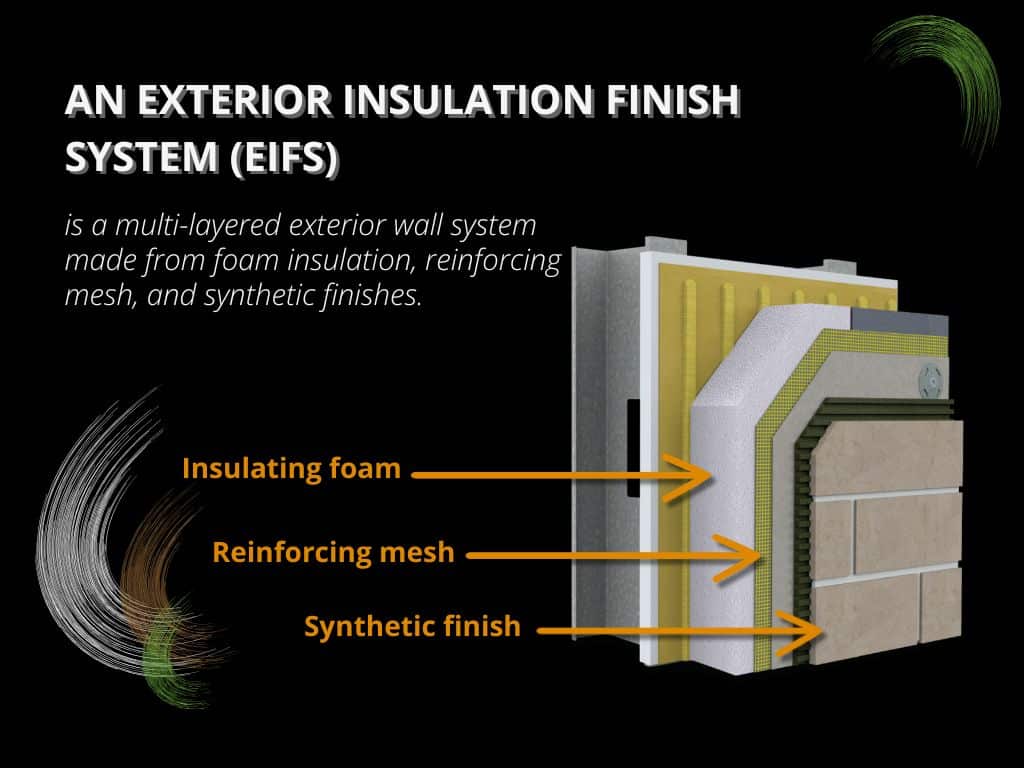
Why it Raises Red Flags in Sales
EIFS started gaining popularity in the U.S. in the 1980s and 1990s. But over time, many homeowners discovered moisture problems hidden beneath the surface. The damage wasn’t always visible from the outside, which led to expensive repairs and even lawsuits.
These problems gave EIFS construction a bad name—especially for homes built before 2000, when drainable EIFS systems became more common.
If you’re buying a home with EIFS, a standard inspection might not be enough. Some issues can’t be seen without moisture testing or probing. If you’re selling a home with EIFS, you may need to provide documentation, repair records, or even perform upgrades to meet the expectations of buyers, lenders, or insurers.
Studies have shown that EIFS systems—even newer ones—are most vulnerable around windows, doors, rooflines, and other areas where water can sneak in. That’s why specialized inspections are so important.
How EIFS Can Affect a Home’s Market Value
EIFS construction isn’t always a deal-breaker, but it can raise concerns during a real estate transaction. In some cases, it can reduce your home’s resale value or slow down the sale process.

Buyers may ask for a discount, request repairs, or even walk away if the home inspection reveals moisture intrusion or damage. Some mortgage lenders also require additional inspections or repairs before closing, especially for older EIFS systems.
However, sellers who stay proactive can avoid many of these issues. If you have an EIFS home, it helps to have:
- A current inspection report from a qualified professional
- Records of repairs or maintenance
- Proof that the system includes proper drainage
- Clear disclosures for potential buyers
Transparency builds trust, and it can make a big difference in how smoothly your sale goes.
What Buyers Should Watch For
If you’re thinking about buying a home with EIFS construction, it’s important to understand the risks and what to look for.
Here are some tips to keep in mind:
- Ask the seller for any past EIFS inspection or repair records
- Look closely at the exterior for signs of cracks, staining, or gaps around windows and doors
- Confirm when the EIFS was installed and whether it includes a drainage system
- Request a full EIFS inspection from a professional trained in identifying issues below the surface
Remember, not all inspectors have experience with EIFS systems. A specialist can detect hidden problems and help you make an informed decision before closing.
Pros and Cons to Expect
| Pros | Cons |
| Handles weather changes well | Pricier up-front |
| Durable | Can trap moisture |
| Customizable | Harder to clean |
| Energy efficient | Can be tricky to install |
Tips for Sellers
If you’re planning to sell a home with EIFS, the best thing you can do is get ahead of potential concerns.
Start with a pre-listing inspection by someone who understands EIFS. This helps uncover any repairs you might need before putting your home on the market—and it gives buyers peace of mind knowing the home has been properly evaluated.
Additional tips:
- Repair any damaged sealant or flashing around windows and doors
- Keep records of EIFS maintenance and share them with your agent
- Be honest in your disclosure about the type of siding and any known issues
Taking these steps shows that you’ve cared for your home and helps prevent delays or surprises during negotiations.
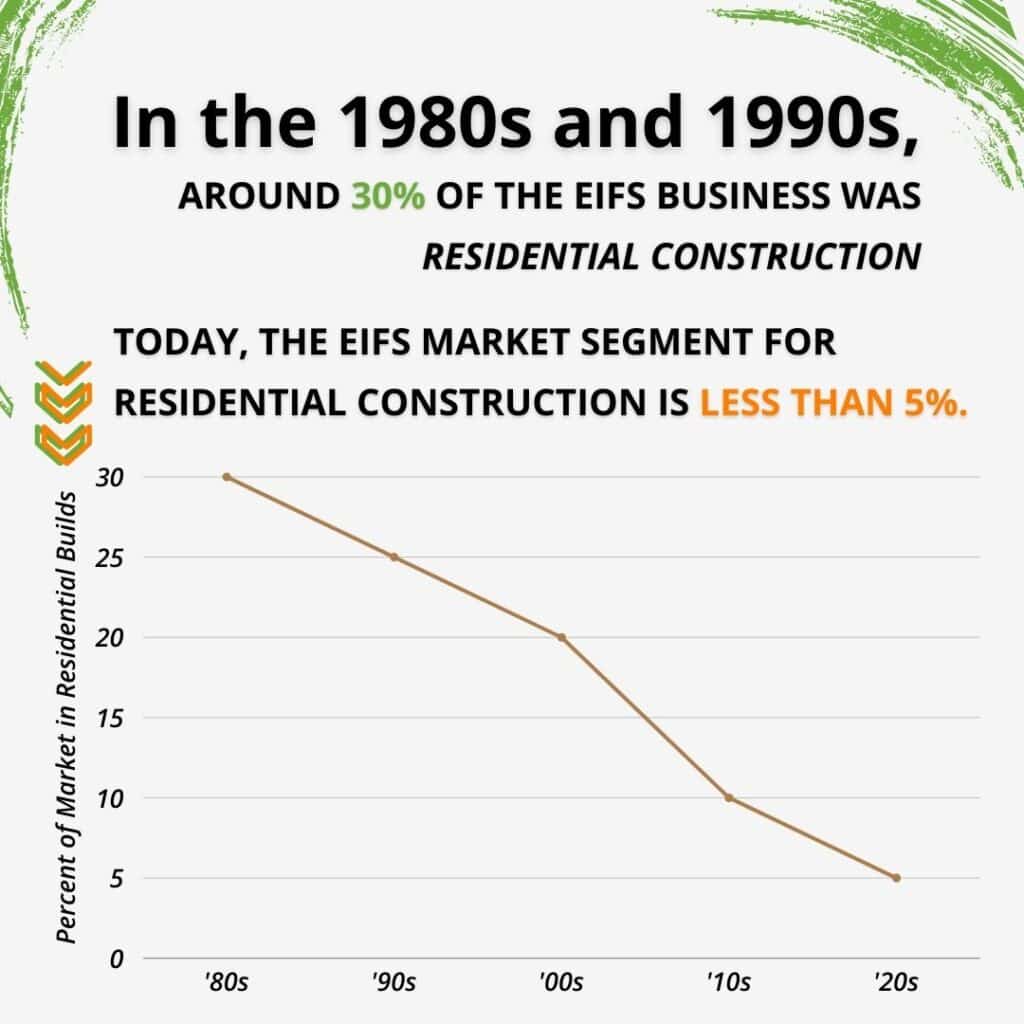
Other Recommended Maintenance
Homes with EIFS construction can last for years if they’re cared for and maintained properly. The key is keeping moisture out.
Here are some simple but effective maintenance tips:
- Reseal windows, doors, and joints every few years
- Keep plants and sprinklers away from the walls to prevent water buildup
- Check regularly for cracks, bubbling, or discoloration
- Don’t install fixtures directly into EIFS without professional help
Staying on top of these tasks helps protect your home and its value—especially if you plan to sell in the future.
When to Call a Professional
Because EIFS issues are often hidden, it’s important to work with someone who knows what to look for. A quick visual check won’t always catch underlying problems.
Call a professional if:
- You’re buying or selling a home with EIFS construction
- You’ve noticed cracks, stains, or soft spots on the exterior
- You’re unsure when the system was last inspected or maintained
- You want a clear picture of your home’s condition before listing
At Inside & Out, we take the time to inspect EIFS systems thoroughly. Our team understands how to spot the warning signs and guide you through the next steps—whether that means repairs, maintenance, or peace of mind before a sale.
Conclusion
Buying or selling a home with EIFS construction doesn’t have to be stressful as long as you know what to expect and work with the right professionals.
The key is knowing what’s behind the walls, staying proactive with maintenance, and making sure any concerns are addressed early in the process.
If you want a professional, thorough inspection, Inspection Gator is here for you.

